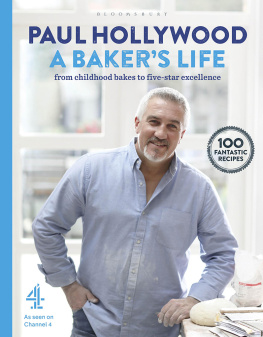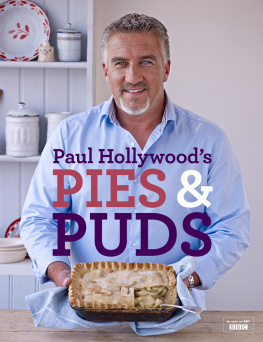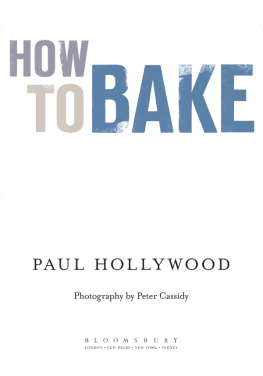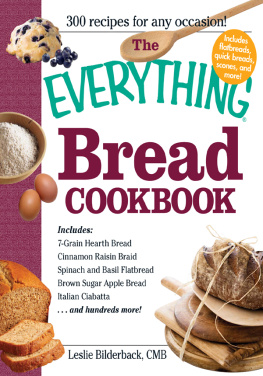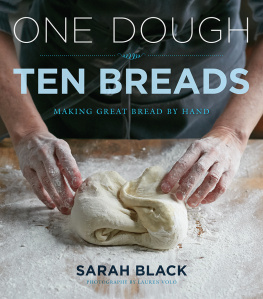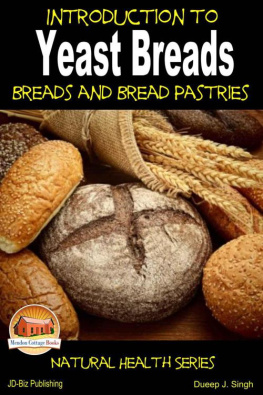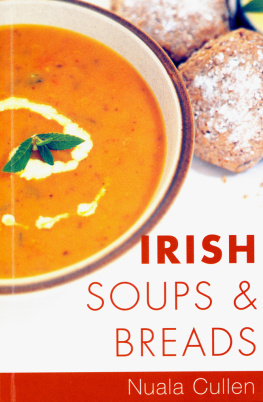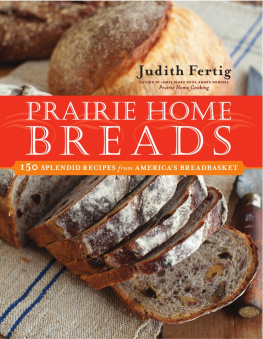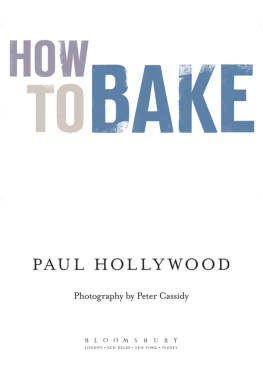Hollywood - 100 Great Breads
Here you can read online Hollywood - 100 Great Breads full text of the book (entire story) in english for free. Download pdf and epub, get meaning, cover and reviews about this ebook. year: 2011, publisher: Octopus, genre: Home and family. Description of the work, (preface) as well as reviews are available. Best literature library LitArk.com created for fans of good reading and offers a wide selection of genres:
Romance novel
Science fiction
Adventure
Detective
Science
History
Home and family
Prose
Art
Politics
Computer
Non-fiction
Religion
Business
Children
Humor
Choose a favorite category and find really read worthwhile books. Enjoy immersion in the world of imagination, feel the emotions of the characters or learn something new for yourself, make an fascinating discovery.

- Book:100 Great Breads
- Author:
- Publisher:Octopus
- Genre:
- Year:2011
- Rating:4 / 5
- Favourites:Add to favourites
- Your mark:
- 80
- 1
- 2
- 3
- 4
- 5
100 Great Breads: summary, description and annotation
We offer to read an annotation, description, summary or preface (depends on what the author of the book "100 Great Breads" wrote himself). If you haven't found the necessary information about the book — write in the comments, we will try to find it.
100 Great Breads — read online for free the complete book (whole text) full work
Below is the text of the book, divided by pages. System saving the place of the last page read, allows you to conveniently read the book "100 Great Breads" online for free, without having to search again every time where you left off. Put a bookmark, and you can go to the page where you finished reading at any time.
Font size:
Interval:
Bookmark:


An Hachette UK Company
www.hachette.co.uk
First published in Great Britain in 2004 by Cassell Illustrated, a division of Octopus Publishing Group Ltd
Endeavour House, 189 Shaftesbury Avenue, London WC2H 8JY
This edition published in Great Britain in 2011
Copyright 2004 Paul Hollywood
All rights reserved. No part of this publication may be reproduced, stored in a retrieval system, or transmitted, in any form or by any means, electronic, mechanical, photocopying, recording, or otherwise, without prior written permission from the publisher.
Edited by Victoria Alers-Hankey and Barbara Dixon
Photographs by Neil Barclay
Styled by Fanny Ward
Design by DW Design
Jacket design by Jo Knowles
Ebook conversion by Splendid Digital Creative Ltd
ISBN: 9781844037070
The moral right of Paul Hollywood to be identified as the author of this Work has been asserted in accordance with the Copyright, Designs and Patents Act of 1988
This book is dedicated to my wife, Alexandra, and my special boy, Joshua.
I would like to thank my mother, Gill, and father, John, for encouraging me into the baking trade in the first place and for washing endless mountains of chefs whites. Id also like to thank my mother-in-law, Gloria, for helping me with some great recipe ideas.
Above all, a special thank you to my wife, Alexandra, for her support, love and patience during my career and the writing of this book.
Bread is the one natural food that has been with us for centuries, but in recent years it has taken a back seat while we indulged our passion for fast foods bursting with additives and E numbers.
I grew up in Liverpool, the oldest of three boys, and food to us was just a source of energy. It wasnt until I began to make bread in my fathers bakery that I realized that the variations and different types of bread were endless and that bread was not just the thick, white, sliced stuff to make bacon butties with!
The aroma of freshly baked bread evokes feelings and memories in all of us a snug kitchen in the winter after school and a still- warm loaf on the table waiting to be smothered in butter and home-made strawberry jam is one of my favourites, but who can resist ciabatta straight from the oven, stuffed with glossy black olives, garlic and fresh coriander? Close your eyes and youre sitting on a vine-covered, sun-drenched terrace, sipping a glass of rich, red wine and surrounded by friends and family.
All the recipes in this book have special memories for me; some are from my childhood and some were discovered during my travels abroad. The textures and flavours all vary greatly, reflecting their origins, and I have added something of myselfto all these recipes to make them unique and, I hope, satisfying to recreate.
Baking bread is a very sociable experience you will find the whole family crowding into your kitchen, drawn by the irresistible fragrance of salmon brioche or a potato and rosemary focaccia. So pull up the chairs, break open a bottle and enjoy the novel experience of eating a home-baked loaf of bread.

I am a man who has bread in Heliopolis
My bread is in heaven with the Sun God,
My bread is on earth with Keb.
The bark of evening and of morning
Brings me the bread that is my meat
From the house of the Sun God.
(Book Of The Dead, Ancient Egypt)
From the depths of time bread has been the one common factor that has linked the worlds cultures together.
A recent excavation in Egypt, two miles south of the Sphinx, revealed an ancient bakery, complete with moulds and working tools of the day. Meanwhile in London, builders working along the banks of the River Thames unearthed ancient loaves of bread dating back to Roman times.
The first breads made were dense and unappealing the grain was crushed and mixed with water to create a gruel, which was then left over a fire to cook hard. They were ideal for early man, being easy to carry on the hunt or into battle, and they would keep for days at a time, but they were not very appetizing.
It was the ancient Egyptians who took baking 10 steps further. They discovered that the crushed grain and water mush, if left in a warm and moist atmosphere, would produce bubbles the first sign of risen bread. This, mixed with fresh flour and then baked, would produce an aerated bread and so the first yeast was created. Bread was incredibly important to the Egyptians. The lower classes lived almost exclusively on bread and it was used as a form of payment by the Pharaohs for work done on the pyramids and temples. Todays Egyptians still eat their meat or vegetables stuffed into loaves of bread, rather like a kebab.
The people of Israel were influenced by their contact with the Egyptians and began to produce a bread of their own. Theirs was a nomadic society, so until they settled, they baked their dough in the ashes of fires, producing a flat, cake-like bread. Later on they began to build ovens and granaries, some of which, like the hill fortress of Masada, are still visible today.
The Greeks began by importing their corn from Egypt, but later began to cultivate their own crops. Grain equalled power in Ancient Greece, land owners were eligible for high offices when a certain standard of productivity was obtained, and in the 7th century BC the Party of Bread the most prosperous farmers ruled Athens.
The Roman Empire also imported their flour from overseas, from such places as Egypt and North Africa and the Romans were responsible for the introduction of the water mill. These entrepreneurs had also developed elegant tastes and many of the breads made then would be acceptable today sesame seed bread, almond bread and milk bread, to name but a few. After the Roman Empire eventually collapsed, it appears that even as late as the 5th century, many Europeans were still making their bread at home.
The art of bread making progressed slowly during the Dark Ages and baking remained a family task in the villages and countryside for many hundreds of years. Eventually, communal ovens were introduced and, for a fee, bakers baked off the bread that was brought in. Some of these communal ovens are still currently in operation in France, where they consider the practice of bread making to be an art form.
Today, there are still people all over the world who bake their bread daily. The Bedouin in Petra, Jordan, bake on a bakestone, the modern version of which is a metal dome, lightly oiled and set over a flame. In some European countries families still come together to bake bread and make it a social occasion, and some even have specially made ovens in their back gardens for just such an event.
Bread holds a social, religious and gastronomic significance for all of us, but it is not just the act of breaking the bread that we should honour, but also the act of making or creating the bread.

There are only a few tools needed to make a good loaf:
Font size:
Interval:
Bookmark:
Similar books «100 Great Breads»
Look at similar books to 100 Great Breads. We have selected literature similar in name and meaning in the hope of providing readers with more options to find new, interesting, not yet read works.
Discussion, reviews of the book 100 Great Breads and just readers' own opinions. Leave your comments, write what you think about the work, its meaning or the main characters. Specify what exactly you liked and what you didn't like, and why you think so.

